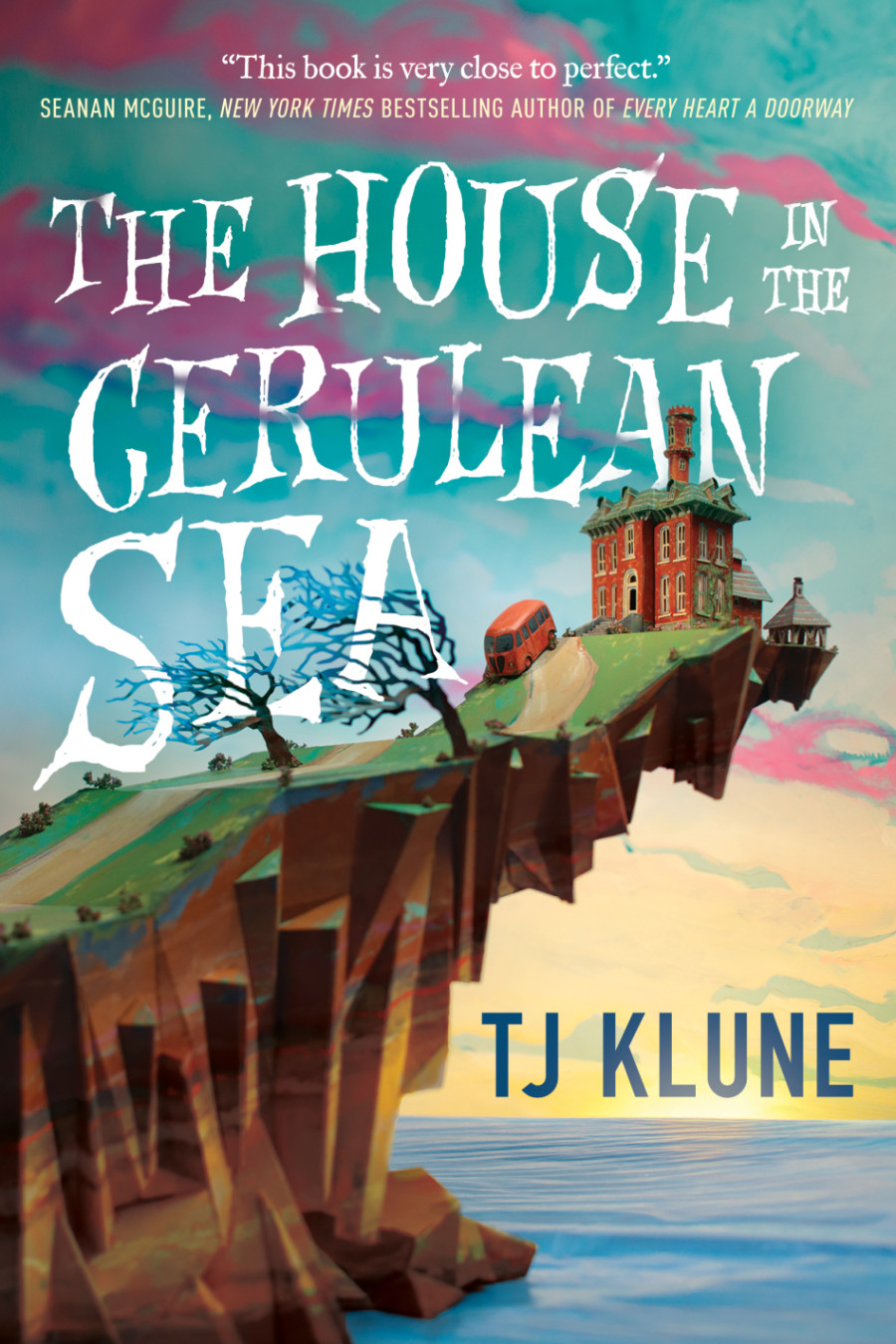Books
The perfect book to brighten the pandemic gloom
‘The House in the Cerulean Sea’ is a rare novel that anyone from nine to ninety (and beyond) can enjoy.
Richa Bhattarai
“The world is a weird and wonderful place. Why must we try and explain it all away?” asks Mr Parnassus, the Master of the orphanage at the incredible Marsyas Island.
And indeed, why must we? If we were to try and explain the marvel that is ‘The House in the Cerulean Sea’ by TJ Klune, words would perhaps not suffice. It is frivolous, frolicky, and fun, yet it is not merely a fable. It is an exhortation to our sensibilities: to respect differences, cherish friendships, embrace diversity, give people the benefit of the doubt, seek adventures, step into surprises, applaud change, celebrate love, and just … enjoy the enchantments of life. Exhale. Dream. Live.
For a novel that holds such beautiful messages, there is very little preaching, philosophising, or highhandedness. There are just pages of vivid characterisations, alluring settings, and sparkling repartees. It is like a Disney movie projected on paper rather than screen. The characters are so distinct, their voices so memorable, and the dialogues brimming with humour and gaiety. Yet this novel strewn with fantastic people cannot be categorised as a children’s book or a young adult read. It is a truly enjoyable adult allegory.
Our protagonist is the staid and disciplined Linus Baker, who has worked with the Department in Charge of Magical Youth (DICOMY) for seventeen years. He is a caseworker par excellence, producing dispassionate and clinical reports that catch the eye of Extremely Upper Management. They decide to send him on a one-month investigation of an unusual orphanage in Marsyas Island, with strict instructions that everything is to be reported back to management. When Mr Baker finally steps out of the train, crosses in a ferry and lands in the gardens of the orphanage, he sees sights so bizarre and people so uncanny that he is left flabbergasted. A month in this orphanage that does not adhere to Mr Baker’s DICOMY books of rules and regulations, he comes across the strangest of beings and a Master whose techniques he disapproves of. However the month turns out, can fastidious Mr Baker allow this unruly dwelling to keep existing?
The plot is quite unoriginal, of course. We have watched enough movies and read adequate books to predict the transformations of heart, the revelations, the character growth. There is really very little that is innovative in the idea of this book. Yet the process of arriving at this climax, the duel between the head and heart, the journey into the unknown, the unlearning of preconceived notions—these are all so heart-touching and relatable. There are glimpses of ‘Harry Potter’ and ‘Alice in Wonderland’, ‘Shrek’, and ‘Stuart Little’, and most charmingly, beloved childhood fantasies by Enid Blyton and Roald Dahl.
Klune’s dialogues are a delight, and his descriptions always vivid and comprehensive. Everything comes alive before the eyes; everyone becomes a friend; the reader steps into the lush forest along with the children. It is an enviable talent that Klune possesses, of brandishing language that will keep readers engaged and entertained and hungry for more. Take this encounter between Mr Baker, Talia the gnome and Lucy, officially branded the Antichrist (though we do not use such pejorative words in the orphanage, an admonishment to us to stop categorising people).
Lucy said, “You’re not dead!” He sounded strangely disappointed.
“Leaders give positive reinforcement,” Talia reminded him.
“Oh. Good job not dying!”
Or Mr Baker’s reports to the management, that start out hysterically funny in their stiff accuracy and then mellow into soft, sensitive outpourings of the heart.
Or the simple yet soothing affirmations the Master has for every ward every day, it somehow also reaches the inner child in us, offering it validation and affection.
Or just the easy way the author plays with the language, making everything seem seamless and effortless, just gliding from one scenario to the other.
Or the sweet and natural development of the romance and LGBTQ representation we all deserve and have longed for.
Or just how, though there is never a single complicated term explaining the unfairness of racism, sexism, xenophobia, or discrimination against the vulnerable, this novel is a solid and direct reminder to question our privileges, examine our prejudices, revere the beauty of diversity, and join the fight against this injustice. Nurture goodness, it says, and nourish tolerance, if not acceptance.
It is not always picture-perfect, of course. At times the plot is too formulaic, catering to tried-and-tested methods in navigating character arcs. Just as a girl does not need to ditch her glasses to turn into girlfriend material, a person does not always need to change from a suit to shorts to have a good time! The Mayor’s interventions, so late and inconsistent, are shoddily inserted. The Master is almost too good to be believable, while the children’s high-pitched theatrics and the ensuing cacophony, especially from one privileged member, becomes intolerable at a point. The conflicts in the plot seem to be placed there half-heartedly, some of them over before they genuinely began. There is more talk than action about how good, brave, and loyal the kids are.
But we shall forgive these flaws and read on this luminous novel that can lend us hope, joy, and purpose as we continue to battle the pandemic.
The House in the Cerulean Sea
Author: TJ Klune
Publisher: Tor
Pages: 400




 17.12°C Kathmandu
17.12°C Kathmandu










